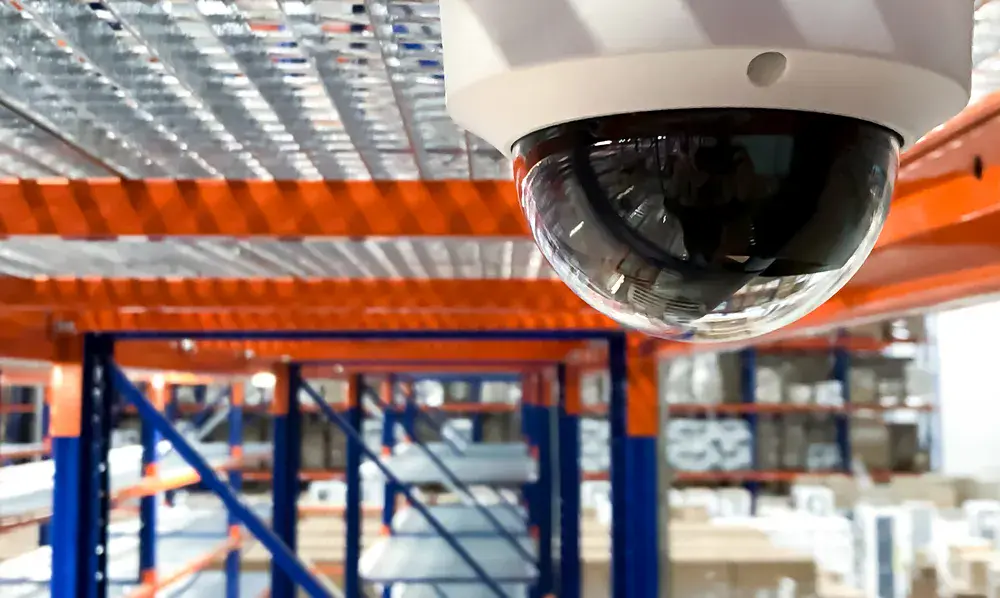
Can you live in a self-storage unit in Singapore? The short answer is no—it’s illegal and unsafe. Singapore’s laws strictly prohibit using storage units as living spaces, and these facilities lack the basic amenities required for human habitation.
This guide explains the legal restrictions, safety risks, and better legal alternatives you should consider for housing. We’ll also cover how to use self-storage in Singapore to your advantage properly.
Key Takeaways
- It’s Illegal: Living in a self-storage space is against the law in Singapore. Doing so can lead to immediate eviction and the loss of your stored belongings.
- It’s Unsuitable for Living: Storage facilities lack proper ventilation and have significant fire hazards, posing serious health and safety risks.
- It’s Unlivable: These units lack essential amenities like running water, toilets, or temperature regulation, making them unfit for habitation.
- Better Options Exist: Safe and affordable housing solutions, like Singapore’s Public Rental Scheme, are available for those in need of a place to live.
A Guide to Storage Space Options in Singapore
Singapore offers a diverse range of storage solutions to fit various needs and budgets. While you can’t live in them, understanding your options helps you find the perfect storage space for rent.
|
Storage Type |
Description & Features |
Ideal For |
|
Self-Storage |
Units of various sizes with flexible rental terms. You get direct, easy access to your private unit. Available in many locations, like Commonwealth. |
Personal items, business inventory, seasonal items, or decluttering your home or office. |
|
Valet Storage |
A door-to-door valet storage service where a company picks up, stores, and delivers your items back to you upon request. |
Individuals need a hassle-free solution without having to transport their own belongings. |
|
Specialised Storage |
Units are designed to provide a stable environment for specific needs. |
Storing sensitive or valuable items, such as wine, documents, art, or electronics, in optimal conditions. |
|
Business Storage |
Secure and affordable solutions for commercial needs, including inventory management and last-mile delivery for e-commerce businesses. |
Businesses that require additional space for inventory, records, or operational support. |
With this variety, finding a storage space in Singapore that suits your needs and budget is simple. Whether you need long-term storage or a short-term solution, Singapore’s storage facilities, such as Extra Space Singapore, provide excellent value, convenience, and competitive prices.
Legal Restrictions: Why You Can’t Live in a Storage Unit
In Singapore, living in a storage unit is strictly forbidden by law. Here’s a breakdown of the legal framework:
- Zoning Laws: According to Singapore’s Urban Redevelopment Authority (URA), facilities zoned for warehouse use cannot be used for residential purposes.
- Rental Agreements: Every storage rental contract explicitly states that units are for storing property only. Using them for habitation is a direct breach of contract.
- Severe Consequences: Violating these terms can lead to immediate eviction, termination of your lease, and the potential loss of all personal belongings stored inside the unit.
These legal and contractual barriers are in place to ensure facilities are used safely and correctly, reinforcing that a self-storage space is not a substitute for a home.
Why Storage Units Are Not Suitable for Living
Attempting to live in storage units presents life-threatening safety concerns. These spaces are designed for objects, not people.
- Poor Ventilation: A sealed unit can quickly develop dangerously low oxygen levels. The poor air quality poses a serious health hazard, particularly for individuals spending extended periods indoors.
- Lack of Residential Safety Features: Storage facilities often contain flammable materials. In case of a fire, oxygen would be consumed rapidly, and most units have only one exit, creating a deadly trap.
- Structural Unsuitability: The lack of windows, emergency exits, and basic safety features makes these units fundamentally unsafe for habitation. Dust and mold can also accumulate due to inadequate maintenance, aggravating respiratory issues.
No Basic Amenities: Why Storage Spaces are Unlivable
A storage facility is not a residential building and is fundamentally unlivable due to a complete lack of basic amenities.
- Uncomfortable: Most standard units lack heating or air conditioning, leading to extreme and unsafe temperature fluctuations.
- No Sanitation: Individual units have no toilets, running water, or garbage disposal services. This creates unsanitary conditions that attract pests and spread disease.
- No Running Water: The absence of running water makes basic hygiene, cleaning, and cooking completely impossible.
This lack of essentials highlights why these spaces are only suitable for storing bulky items and other possessions, not for creating a living space.
Serious Health Risks of Living in a Storage Unit
Living in a self-storage unit can severely damage your health. The environment is not designed for human life and poses numerous risks:
- Respiratory Problems: Inadequate ventilation and the potential for mold growth can cause or worsen respiratory conditions like asthma.
- Lack of Utilities: Without running water or electricity, it’s impossible to maintain personal hygiene, safely prepare food, or use essential electronic devices.
- Unregulated Temperatures: The risk of hypothermia in cold conditions or heatstroke in the Singaporean heat is very real and dangerous.
- Unsuitability for Families: Families found living in these unsafe conditions may face intervention from child protective services.
These significant health risks underscore why a storage space is never an alternative to a proper home.
Security and Privacy: Designed for Items, Not People
While self-storage facilities pride themselves on security, these measures are designed to protect stored items, not to provide a safe living environment.
Advanced CCTV surveillance and on-site staff are in place to deter theft and monitor the premises. While this is great for your belongings, it means any attempt to live in a unit will be discovered quickly. Most facilities require a security deposit and use secure access cards, restricting entry to authorised renters and further ensuring the property is used only for storage.
These measures are excellent for protecting your possessions, but make it clear that a storage facility is not a private, livable space.
The Social & Ethical Side of Living in Storage
Resorting to living in a storage unit carries heavy social and ethical burdens. Individuals in this situation often face social stigma, leading to isolation and damaging personal relationships. These facilities are not communities and lack the social environment needed for a healthy life. Ethically, it raises serious questions about the availability of safe and affordable housing, highlighting a societal responsibility to provide better solutions.
Finding Affordable Storage Options in Singapore
For those who need extra storage space, Singapore offers a wide range of affordable storage options. Many self-storage providers feature competitive prices and flexible rental terms, making it easy to find cheap storage space that fits your budget.
Whether you need to store a few boxes, large furniture, or even business inventory, you can find unit sizes to match. If you want to compare prices, consider these options:
- Self-Storage: Gives you direct access to your unit. Storage prices in Singapore are competitive, offering great value.
- Valet Storage: An ultra-convenient valet storage service where items are picked up and dropped off for you. This is a hassle-free way to get more space.
- Specialised Storage: Options like dedicated wine storage ensure that even your most sensitive items are kept safe.
With so many choices, it’s easy to find a solution that meets your storage needs without breaking the bank. Look out for ongoing promotions to get the best deal.
Tips for Choosing the Right Storage Facility
As storage specialists with over 15 years of experience helping Singaporeans find more space, we at Extra Space Singapore recommend focusing on these key factors to ensure you get the best deal:
- Location: Choose your preferred facility in a convenient location with hours that suit your schedule.
- Security: Ensure the facility has robust security, including 24/7 CCTV surveillance, secure gate access, and on-site staff.
- Unit Size & Flexibility: A good facility will offer storage units in various sizes and provide flexible plans to match your needs, whether short-term or long-term.
- Cleanliness: Visit the facility to assess its condition. A clean, well-maintained space is crucial for protecting your belongings.
- Ask Questions: Talk to the storage specialists about access, hidden fees, and any promotions to ensure full transparency and customer satisfaction.
Real Housing Alternatives in Singapore
Fortunately, no one has to resort to living in a storage unit. Singapore provides viable and dignified housing alternatives.
The HDB Public Rental Scheme offers heavily subsidised flats for Singaporean citizens with no other housing options. This ensures low-income families have access to safe, stable, and affordable homes. Financial assistance is also available, making it a practical and supportive option for those in need. Exploring these solutions allows residents to find a proper living space that meets their needs.
How Self-Storage Can Improve Your Living Space
While you can’t live in a self-storage space, you can use it to improve your home dramatically. A storage unit is the perfect tool for decluttering and creating extra room in your apartment or house.
By moving seasonal items, rarely used furniture, and other bulky items into a secure storage space, you can free up valuable square footage. This is especially useful for making a home feel more spacious and organised, which is an excellent benefit if you’re trying to sell your property. For those in temporary living situations, a storage space rental helps manage belongings without having to discard them.
At Extra Space Singapore, our expert storage specialists are trained to help you assess your needs and find the right storage size, ensuring you only pay for the space you need. Whether for personal belongings or business inventory, using self-storage is the key to maintaining a tidy, organised home.
Summary
To be clear: living in self-storage units in Singapore is illegal, unsafe, and impractical. These spaces lack the basic amenities and security for habitation, and doing so has serious legal and personal consequences.
However, when used correctly, self-storage solutions offer incredible benefits. They provide flexible, secure, and affordable extra storage space to help you manage personal and business belongings. By understanding the proper use of storage in Singapore, you can declutter your life and enhance your living space without compromising on safety or the law.
If you’re ready to see how a secure, flexible storage space can benefit you, contact the experts at Extra Space Singapore today.
Frequently Asked Questions
What are the storage unit sizes available in Singapore?
Unit sizes in Singapore typically range from small lockers of 10 sqft to large units over 200 sqft. It’s important to choose the right storage size for your specific storage needs to get the best value.
What is the minimum rental period for a storage space?
The minimum rental period is usually one month. Many facilities offer flexible terms, so you are not locked into a long-term contract.
Are there any items that cannot be stored in a storage unit?
Yes. You cannot store perishable food, certain regulated materials, or living things. Always check with your specific storage facility for a complete list of prohibited items to avoid issues.
Is insurance available for storage units?
Yes, most reputable facilities offer insurance options to protect your belongings. It’s highly recommended to ensure your stored items are covered.
Can I access my storage unit at any time?
Many modern facilities offer 24/7 access via a personal access card, giving you the flexibility to retrieve or store your personal items whenever you need to.




